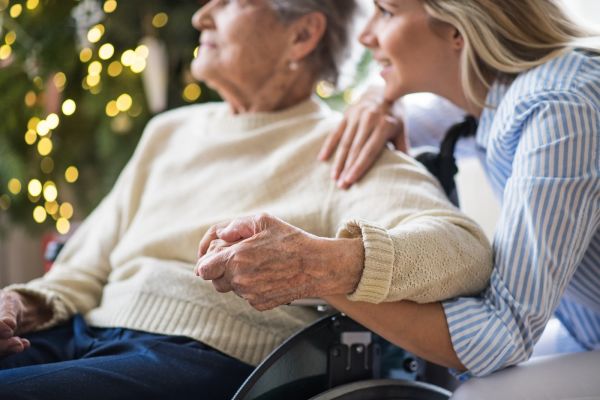The start of each new year brings new opportunity, new hope, and another chance to start fresh with a healthier lifestyle.
While there is no single, magical way to prevent all types of cancer, many healthy-living changes can help reduce your risk for several different types of cancers. Get started on building a healthier you today by including these key cancer-fighting steps as part of your daily living:
Quit smoking and any tobacco use (or never start!)
It’s a fact — smoking causes cancer, and not just lung cancer. Smoking cigarettes has been linked to increased risk of cancers of the throat, mouth, nasal cavity, esophagus, stomach, pancreas, kidney, bladder, and cervix, and acute myeloid leukemia. And think of the health of your household, too. Nonsmokers who live with a smoker have a 20-30% increased risk for developing lung cancer. The New York State Smokers’ Quitline can help you get started.
Take steps toward a healthier diet
In general, limit your intake of red and processed meats. Instead, opt for plant foods like veggies, fruits and whole grains, with the goal of filling 2/3 of your plate with these selections. Adding in more seafood to replace red meat is also a heathy strategy. Learn more about incorporating healthy eating into your new year plan.
Get up and move
We know you’ve heard it before, but exercise is a vital component of any healthy lifestyle. The evidence is quite strong that people who are more physically active have lower risk for may types of cancer, including cancers of the bladder, breast, colon, endometrium, esophagus, kidney, stomach and more. Learn more about the link between physical activity and cancer from the National Cancer Institute (NCI) and check out the resources to help get you started.
Understanding your family history and personal risk
Some risk factors, like family history and race, are beyond your control. But this doesn’t mean you should ignore them. Understanding your personal risk factors for cancer is an important first step. Has your family had any new diagnoses of cancer or related conditions? Make sure you discuss these with your physician and be sure to keep your yearly checkups. Your family history and other risk factors may impact the cancer screenings you should have. For instance, Roswell Park offers several High Risk programs, providing expert surveillance and screening, for people who face an increased risk for these cancers: breast, ovarian, lung and pancreatic, as well as a program especially for first responders.
Get screened for cancer!
Cancer screenings are important tests that help to detect cancer (and even precancerous lesions) long before any symptoms might appear. Screening guidelines for some cancers have changed in recent years and you may already be overdue. For example, routine screening for people at average risk for colorectal cancer should start at age 45 — five years earlier than previous guidance. Learn which cancer screenings you should have this year.
For a more in-depth look at cancer prevention, including a breakdown of risk factors and prevention tips by cancer type, visit the NCI’s resource on cancer prevention.
Happy New Year!
Survivorship at Roswell Park
A significant number of cancers are found in people who have already had cancer. If you are a cancer survivor, learn how our Survivorship program can help keep you on track with healthy living.
Learn more

